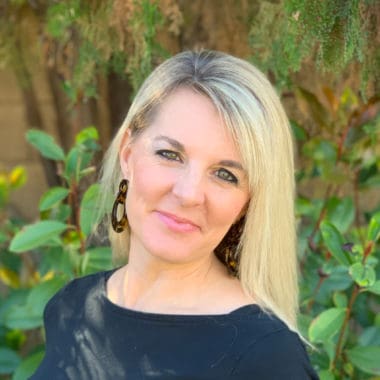This Present Paradise
A Series of Reflections on St. Elizabeth of the Trinity
(Read part 2 here)
I was self-conscious as my Dad led me through the hospital lobby, my First Communion veil blowing behind me. I wore the white dress that day for Grandma, who wouldn’t be at the Church. The cancer was consuming her, and she didn’t have long to live.
It was so hard for her to turn her head as I tiptoed to the bedside, but Grandma managed a faint smile for me. I was shocked by how gaunt she was, how frail. Life was slipping away—at seven years old, it was the first time death would touch me. Just a few weeks later, I was with my Mom when Dad called, and she held me as she choked out the news of Grandma’s death. When Dad returned home, he seemed empty—it was the first time I saw my father cry.
A few months later, my dad’s dad was gone, too. Suddenly, unexpectedly, this time—a heart attack. I was in the room when Dad got the call from his brother, and my own heart stopped as I watched him run out of the house that summer day.
For weeks afterward, the sound of the phone would put me into a panic. I would flee into the basement whenever it rang. Sitting on the steps, my hands over my ears, I rocked back and forth and prayed. Please, God. Please don’t let anybody else die.
Death changes a child. Things that seemed stable and safe suddenly shift like sand beneath a receding wave. St. Elizabeth of the Trinity would know loss early and in a very intimate way, and it would change her life, as it does for all of us.
She wasn’t even two years old when her mother’s mother died, and her grandfather came to live with the family. By the time she was five, both her father and grandfather had retired and spent many happy hours at home with Elizabeth and her younger sister. To have the affectionate and undivided attention of two father-figures must have delighted the little girls. But the family circle would contract suddenly, devastating them all: her grandfather would die, and then, within a year, Elizabeth’s father would die of a heart attack.
She was only seven when her father took his last breath in her small arms that Sunday morning. “I tried to hold back / That last, so very long sigh,” she wrote years later.
He had held her all her short life, now she held him as he left this world. I can’t imagine what that would do to a little girl, to be so young and so close to the shattering reality of death. “In a sense,” the Catechism says, “bodily death is natural, but for faith it is in fact ‘the wages of sin.'” (1006) In other words, we reel from separation because we were never created for it. “Even though man’s nature is mortal, God had destined him not to die.” (1008) However, Elizabeth’s life would become more and more a vivid illustration of Christian hope–that our death only brings to completion what baptism begins: our participation in not only the death but also resurrection of Jesus Christ.
Hope rises in time
from all places subject to death–
hope is its counterweight.
The dying world unveils its life again
in hope.
-Pope St. John Paul II, Hope Reaching Beyond the Limit
After this traumatic event, Elizabeth’s mother, Madame Catez, moved her two daughters to a smaller flat on the other side of town, where Elizabeth’s room overlooked the garden of the nearby Carmelite convent. Something new–and hopeful–stirred within her as she gazed beyond the walls into that mysterious, prayerful world below.
That something would eventually sever the tight trio of her small family—but this time it would be a slow cut: her mother, now alone with her girls, the three of them wound tightly together, would dread any hint or whisper of a vocation even more than I had feared to hear the ominous ring of the phone after so much loss. She had already lost her first fiancé, her mother, and then in one year, both her father and husband. To ‘lose’ a daughter to the cloistered life? Excruciating. Eventually, though, her loss would be the world’s great gain.
A threefold cord is not quickly broken. (Eccles 4:12)
(Read part 4 here.)
Image used with permission of Unsplash.




